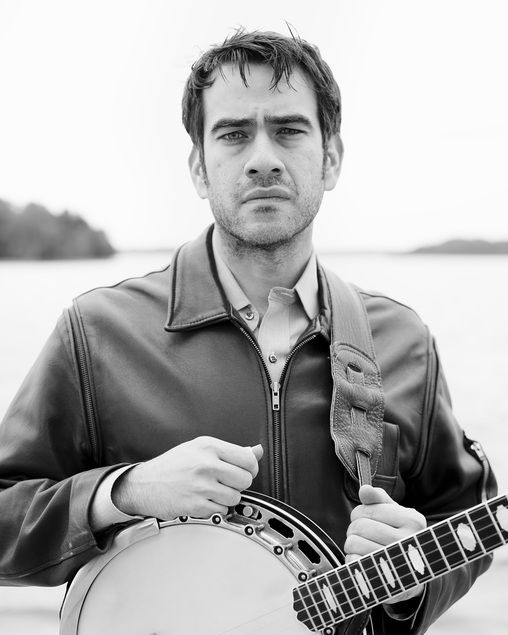
It’s feeling a bit like a Monday, so that means Musical Mondaze!
This time out we’re sitting down with Noam Pikelny, a founding member of Punch Brothers and one of today’s premiere banjo players. His latest solo album, “Universal Favorite,” not only highlights that superb picking, but it also features something relatively new to the Illinois native’s repertoire… lead vocals.
We recently sat down with Pikelny to discuss how he felt about stepping out from his band-based comfort zone, the misconceptions surrounding the banjo, and how the instrument is going mainstream.
TrunkSpace: The album has been out for a little over a month now. What is that experience like for you in terms of releasing new music to the public?
Pikelny: Well, there’s a great deal of anticipation any time you release a new record. I can only speak for myself and speak to the process of musicians I have witnessed or have collaborated with over the last few years, but a record is really a chance to make something permanent and I don’t know what the point of the process of making a record is if you don’t give your all to it. So, records are fairly all-consuming for me and I think there’s always this sense of permanence with a record in that with every experience I’ve had with a record, it’s always been down to the wire… always just trying to make sure you’ve got your point across and that you’ve gotten the right material or that the material is in the right sequence. Even down to the amount of space in-between each track. The silence. The sense of permanence really kind of raises the stakes on the record making process. And so, it was really all-consuming for me until I finished it last November. I think the process of releasing a record is this unveiling of something that has been so close to you… that you have kept so close… but by design it is made for everyone else. I don’t sit around and listen to my own records. It’s something I created for everyone else. And so I think the process of releasing a record is… (laughter)… certainly cathartic and I think touring right when you have a brand new record makes it a lot easier to see the reaction that the music is having on people. When you release a record, you don’t see the reaction on people’s faces or see how they’re moving. You don’t get applause when people are listening in their living rooms or in their cars hundreds of miles away. I feel like an album release tour right around when the record comes out kind of makes the album more of a living being because that brings it to life and animates the release of the record. So, some people are coming to these shows having picked up the record on release day and wanting to hear them performed live. Some people might not have heard the record and they’re wanting to check out the show and then leaving with the record. So I feel like it makes it more of a sort of living experience.
It’s one of the brief moments of relief in a musician’s life when you actually have that record finally in your hand for the first day. That day that it shows up, it’s finished and it’s hard not to get reminiscent or sentimental thinking about just how long ago that these songs started materializing and now it’s something concrete playing on the turntable. So for me it’s always an enjoyable process and… well, I enjoy the final release. As hard as it is to let go, it’s necessary and a relief.
TrunkSpace: You mentioned how you write the record for other people. With that in mind, do you focus on the expectations of a particular album or do you take the approach of, once it’s out of 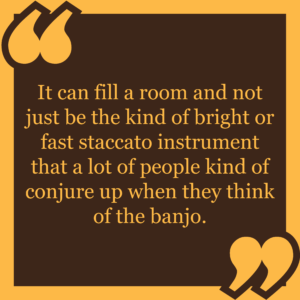 your hands it’s out of your control?
your hands it’s out of your control?
Pikelny: Once the record is done, there’s only so much you can do. I guess you could try to spin the record or spin the story behind it so people will listen to it with something in mind, but I think at the end of the day people are going to put the music on and it’s either going to resonate with them or it’s not. I spend most of my time post-record just making sure people know it’s out. I made a kind of silly promotional video, which was designed first and foremost to let people know that there is a new record… just to kind of rise above the din. You know, the 200 releases that are happening every day.
TrunkSpace: It’s great because technology has enabled people to create art and put it out into the world more easily, but at the same time, it’s overwhelming.
Pikelny: It’s the golden age in the sense of the amount of content being created and/or being disseminated. And that’s not just in music. It’s just overwhelming if you think about just how much great art and how much great media is being created. I don’t know when people find the time to listen or watch. If you consider how much great television there is and now with the number of podcasts there are, it’s like… it’s just disorienting.
TrunkSpace: You can sit down to watch something, spend all night trying to decided what that something will be, and then realize that you have no more time left to watch.
Pikelny: Yeah. I’ve fallen into that trap.
TrunkSpace: You’ve released other solo albums in the past, but “Universal Favorite” was really sort of the first one where you did it all. Does that make it a scarier undertaking knowing that everything rests on you?
Pikelny: I think initially there was a real sense of challenge, like personal challenge, to see how I could pull it off because it was not something I was gearing up for for decades. I have mostly spent my entire career on stage with four or five piece bands and there have been very few instances… I can’t even think of an instance… where I played a solo song on stage prior to two years ago when I started brainstorming this project. So it was a fairly new idea, but something I was always drawn to. I’ve always thought that a solo show really kind of brings you closer to an artist in a way that’s just not possible when there are lots of musicians on stage. The intimacy of a solo performance or a solo record, it just seems so direct to me and I’ve always loved seeing people play solo, whether it’s been something recent… like I love what Julian Lage is playing on guitar. There’s an old-time banjo player named Adam Hurt who put a beautiful record together of old-time music on Gordon banjos called “Earth Tones” and if you just kind of go back, there’s so many wonderful examples of solo performances. There’s some live records of John Hartford that to me are just the gold standard of a solo show. It just provides a glimpse that’s not possible in a larger group setting. And so it was something I was always drawn to as a listener and I kind of felt like any good musician should be able to do this or should have to do this at some point, but I kind of called myself exempt from that kind of idea. Things were very comfortable playing with a five-piece band. You get used to your habitat and then anything outside of there can be a little intimidating. So, I kicked the can down the road and then eventually it became clear to me that this was the time to do this solo project.
My last album, which was kind of a tribute to the music of Kenny Baker and Bill Monroe, was with a five-piece bluegrass band in the studio and we were playing kind of the most classic Bill Monroe material and I was getting to play with all of my bluegrass heroes. It really shaped up to something that I was really proud of. It was a labor of love and it was such a joyous experience playing with this five-piece band and it was very well-received. The idea of following up a record like that with the same instrumentation was really daunting. I felt like, “Why would that come next? I’m just setting myself up for disappointment.” (Laughter) People were hearing me play the most classic bluegrass music that they had an emotional and sentimental connection to with the best players in bluegrass and I’m not going to go back into the studio with the same instrumentation. I wanted something that would provide a lot of contrast and I thought there was no more contrast than just doing something completely solo.
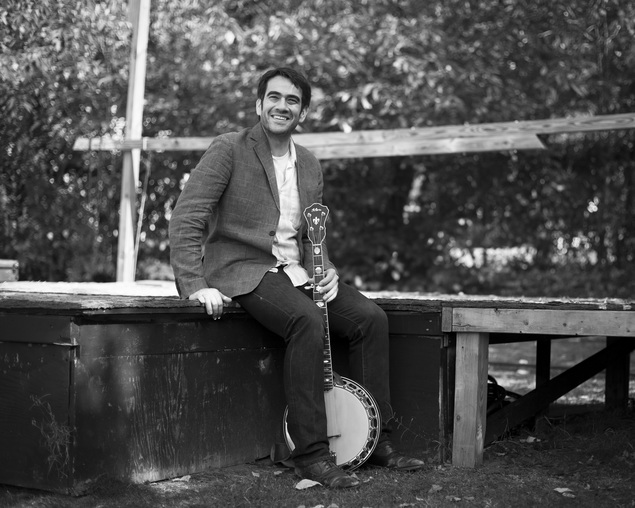
TrunkSpace: So as you dove into the process and into the studio, where did you find yourself being hardest on what you were creating? Where were you your own worst critic?
Pikelny: Singing kind of being the newest endeavor on this record, probably more time went into reshaping that than anything else. Not that I transformed myself into this maestro of a singer, but I had to really figure out what the best use of my voice was on this record. The album was initially conceived as a kind of solo, more instrumental type of record. There are all of these aspects of the banjo that really shine in a solo setting that a lot of people haven’t heard before. The banjo can actually be really warm. It can have sustain. It can fill a room and not just be the kind of bright or fast staccato instrument that a lot of people kind of conjure up when they think of the banjo.
TrunkSpace: You brought all of those aspects to “Universal Favorite.” The banjo play is so warm and it’s married so naturally with the vocals.
Pikelny: Thank you! That was kind of the initial motivation and as I was putting together a list of material and writing material, I felt like there was a real blind spot in the fact that there were no songs on the record. Especially when I was getting ready to play this show live. I was getting ready to take this out about a year and a half ago… a little over a year ago just to kind of test the concept and workshop the idea of playing solo and to teach myself, essentially, what it takes… and as I was putting that set list together it became obvious to me that I had to have some songs on this. I love playing vocal music. It’s such a huge part of my musical being… my musical fabric… to be playing songs and playing in-between the lyrics that I didn’t want that to be missing from this record just because I’m not known as a singer first and foremost. I figured it would be worth investigating singing just to kind of fill in those holes in the tapestry and so the songs were chosen to kind of help fill in the arc of the set list and it was fun to all of a sudden have this opportunity to pick songs that I would get to sing and kind of curate the material. It was a chance to finally record some songs that I had in my back pocket for a little while. Like “Old Banjo” was a song that I first heard and started playing when I was a little kid. When I was 10 years old, it was actually the very first song on the very first album I ever owned, so it had been something I’d known for a long time.
TrunkSpace: Do you think that people underestimate what a banjo can do musically?
Pikelny: I would never argue that I’m the first person to shed light on this instrument in new ways. The banjo has been explored in so many settings… in modern settings outside of the five-piece bluegrass band ensemble by so many people. A record that really inspired me when I was coming up was a collection of solo banjo music by Béla Fleck and Tony Trischka. It was the two of them and they split up the record. They made a record together where they both played solo and then there was a duo to close out the record. It was called “Solo Banjo Works.” That was probably one of the first experiences that I had that kind of enlightened me to the possibilities of the instrument or just how intriguing the banjo can be in a solo setting.
I think to the world, to the people en masse, the banjo is still the instrument you hear in a car chase. Or you’re now hearing it as like a texture in the background, barely discernible on a lot of pop country stuff.
TrunkSpace: And you can hear it a lot in Irish-inspired punk.
Pikelny: Right. Yeah. So it’s starting to be utilized in all of these different settings. If someone had told me 20 years ago that one of the biggest bands in the world was going to have a 5-string banjo featured prominently as one of their main textures, I would have thought they were completely high. (Laughter) Mumford & Sons, one of the biggest bands in the world and using a banjo. The banjo used to be kind of anathema to anything commercial. In the late 80s and early 90s when I was getting started, people were taking the banjo out of anything because it was a liability. I think New Grass Revival, which was the band with all of these Nashville super pickers… Sam Bush and Béla Fleck… they were playing music that should have been on country radio. There’s no reason that they couldn’t have had number one hits on country radio and for whatever reason it didn’t happen, but I’ve heard of these struggles of the label wanting to turn down the banjo in the mix and that’s with Béla Fleck in the band.
So, there’s been a major transformation as far as cultural appetite for the instrument, which is probably the reason I have a roof over my head. (Laughter)


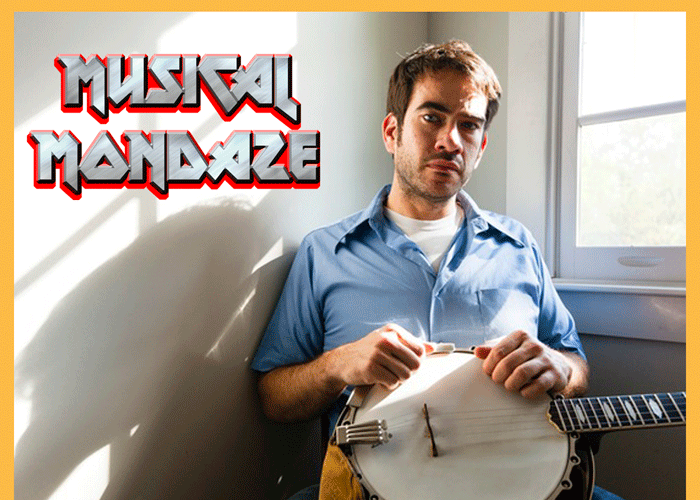
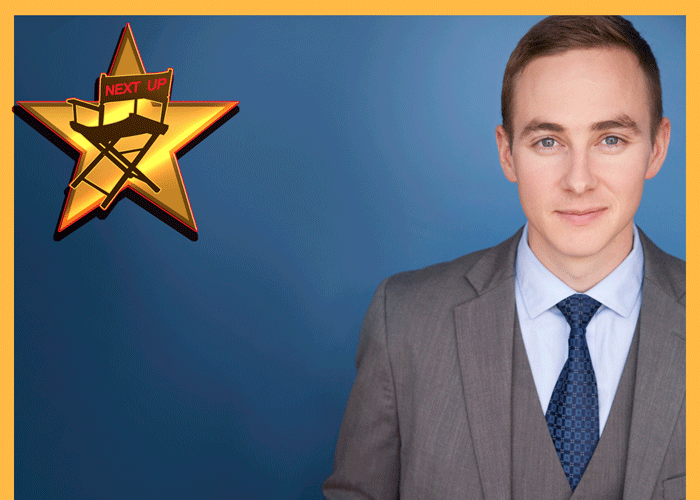
 Name: Tim Drier
Name: Tim Drier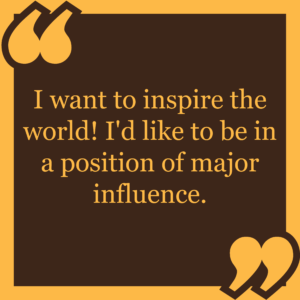 Missouri, but I loved it! Then money started running low and it all got very real, but, I stuck it out, by the grace of God, and three years in I had a steady income, good people around me and found a good church. All I need.
Missouri, but I loved it! Then money started running low and it all got very real, but, I stuck it out, by the grace of God, and three years in I had a steady income, good people around me and found a good church. All I need.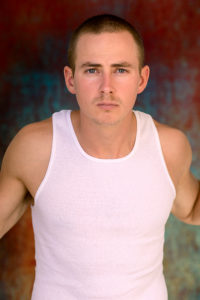 TrunkSpace: What would you say is the greatest strength an actor/actress can have outside of acting ability itself?
TrunkSpace: What would you say is the greatest strength an actor/actress can have outside of acting ability itself?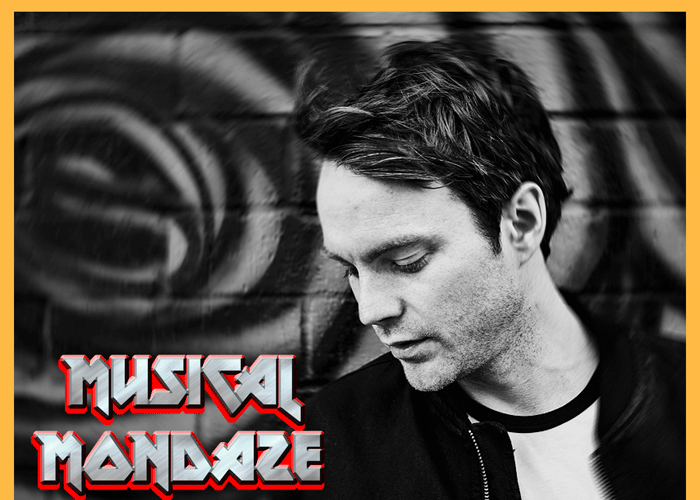

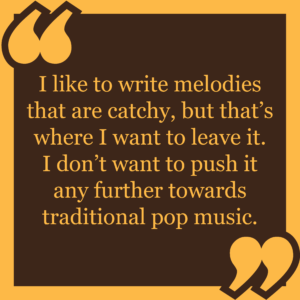 kind of balancing how personal I want to get because songwriting is a really personal thing. If someone asks me a question about a song, I don’t necessarily want to share my deepest, darkest secrets… unless it’s someone that I’m close with. So yeah, I do think about that, but I also don’t want to trivialize anything or have everything just be kind of general. I guess there’s just a fine line between being personal and letting people in, but also kind of keeping some things for myself.
kind of balancing how personal I want to get because songwriting is a really personal thing. If someone asks me a question about a song, I don’t necessarily want to share my deepest, darkest secrets… unless it’s someone that I’m close with. So yeah, I do think about that, but I also don’t want to trivialize anything or have everything just be kind of general. I guess there’s just a fine line between being personal and letting people in, but also kind of keeping some things for myself.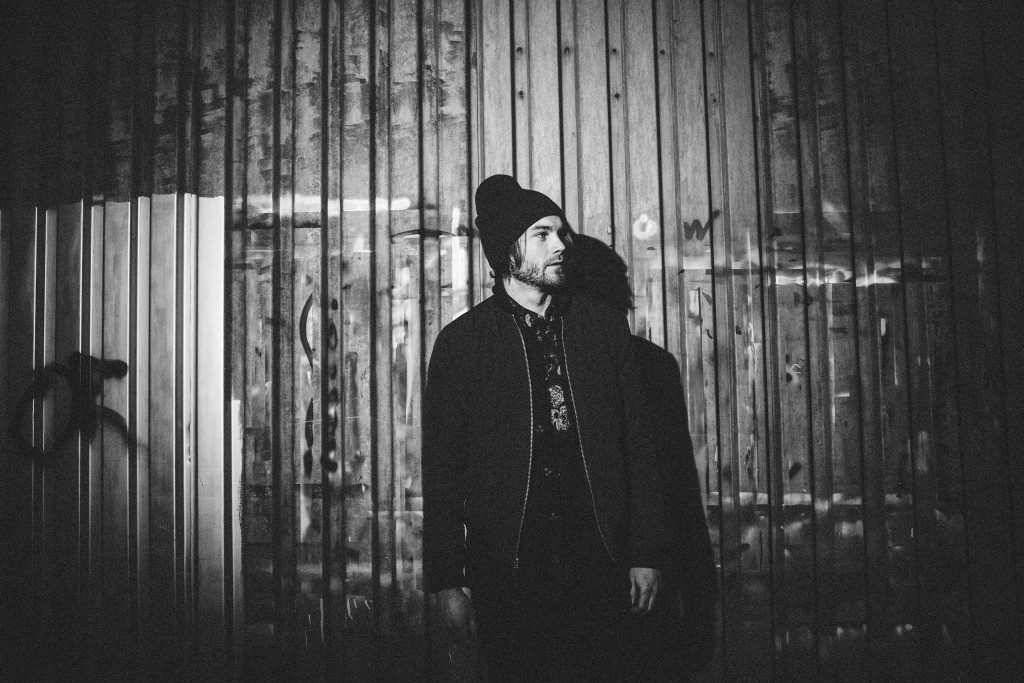
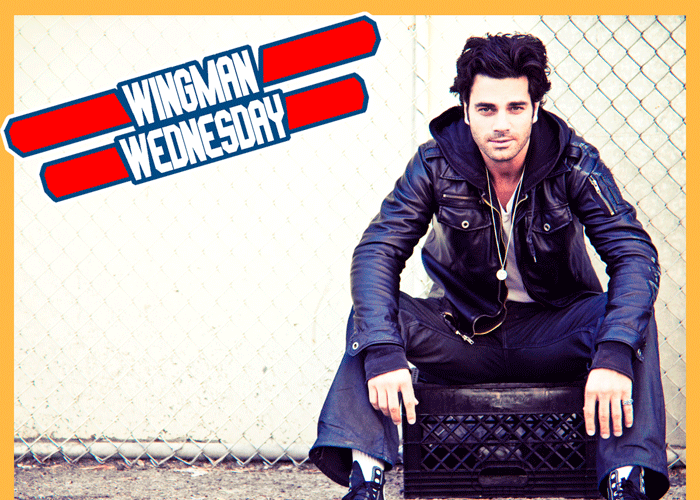
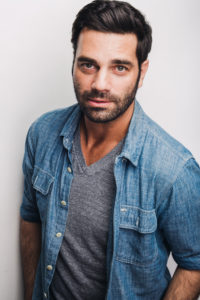
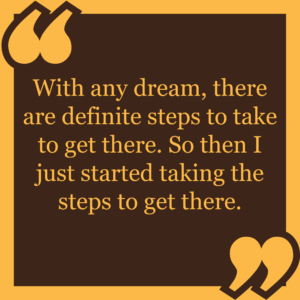 (Laughter)
(Laughter)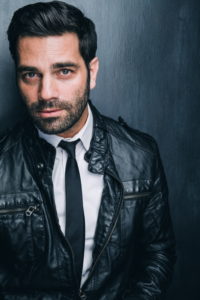
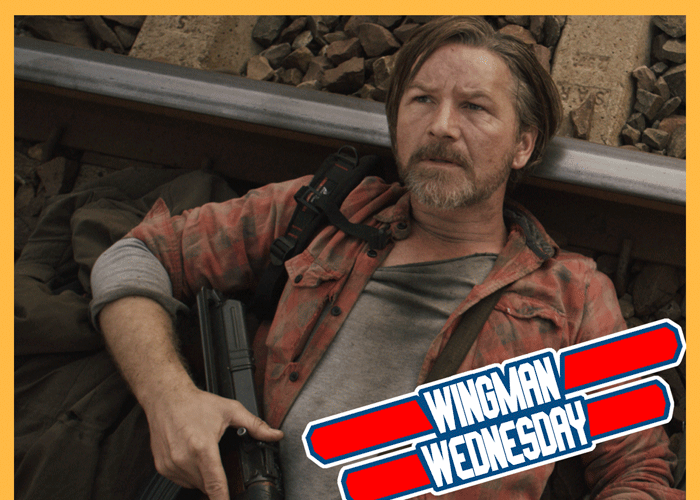
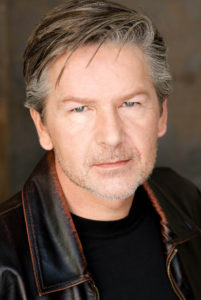 In this, the golden age of television, it’s becoming increasingly more difficult to find original content in a sea of “original” content. With so many quality productions showing up on the small screen, it’s hard to get excited for every new series because, frankly, there’s only so many hours in a day. So, when a concept comes along that oozes inventiveness and cleverness, it’s hard not to take notice.
In this, the golden age of television, it’s becoming increasingly more difficult to find original content in a sea of “original” content. With so many quality productions showing up on the small screen, it’s hard to get excited for every new series because, frankly, there’s only so many hours in a day. So, when a concept comes along that oozes inventiveness and cleverness, it’s hard not to take notice.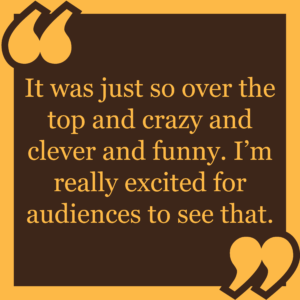 in South Africa and is it different than here in the States where actors are often held in a high regard?
in South Africa and is it different than here in the States where actors are often held in a high regard?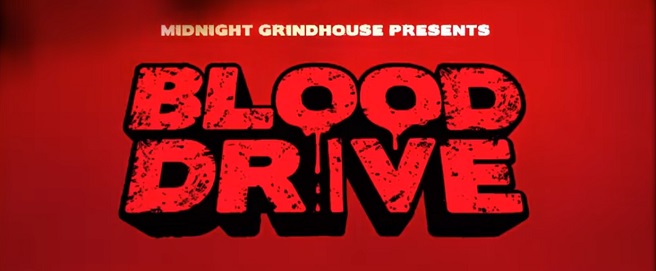
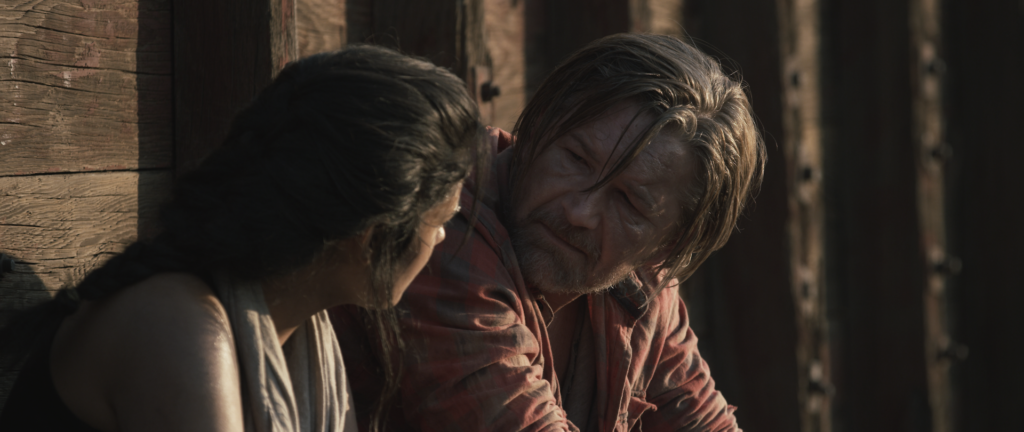
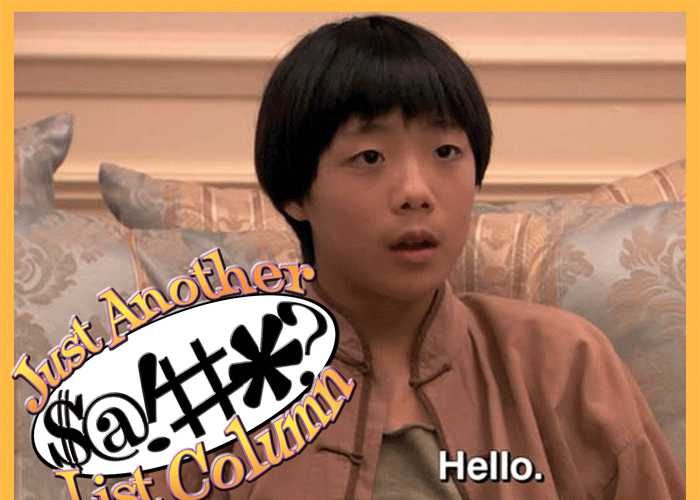
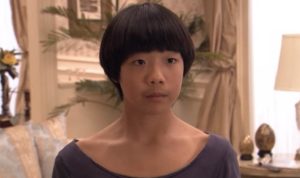
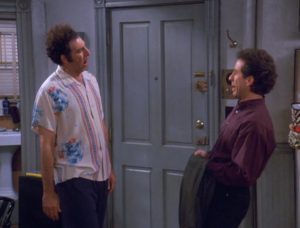
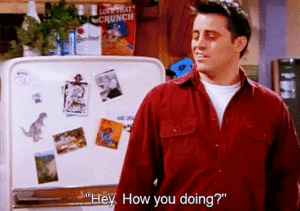
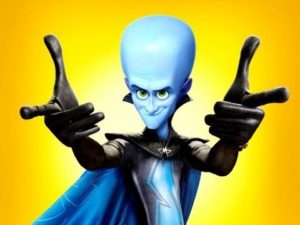
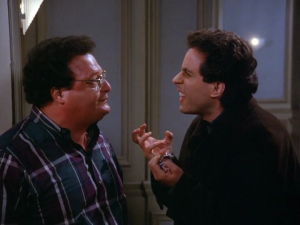
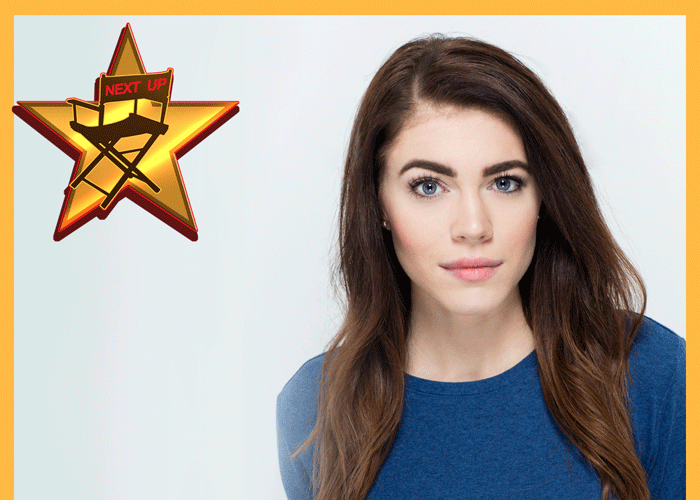
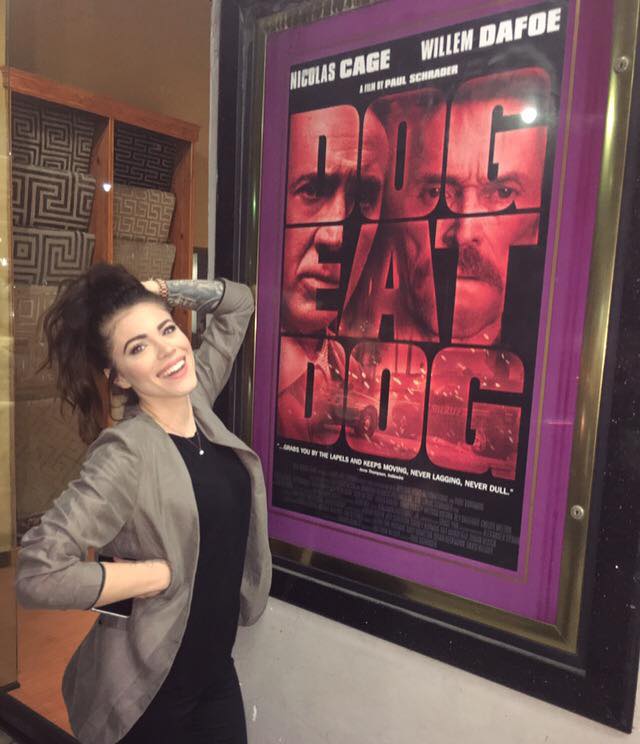 Name: Chelsea Mee
Name: Chelsea Mee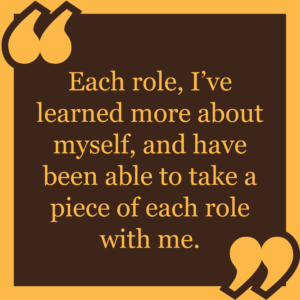
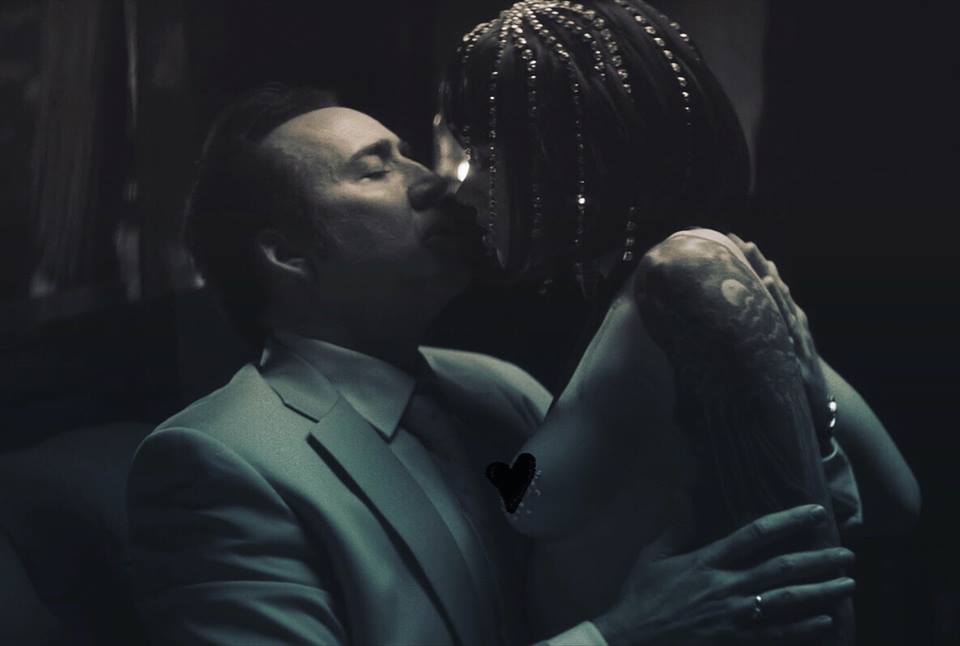
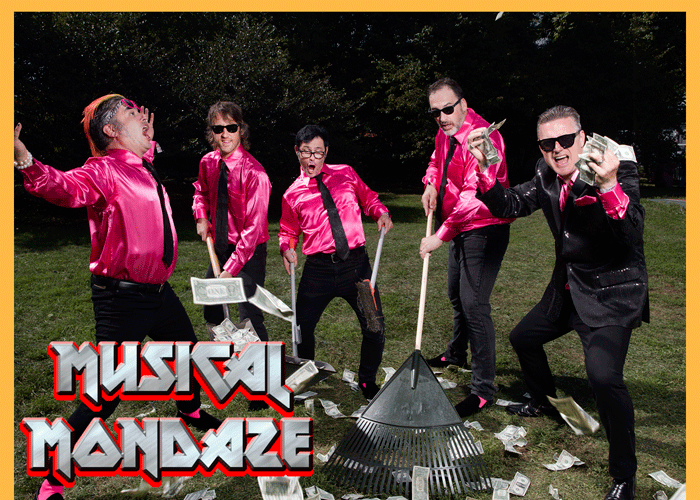
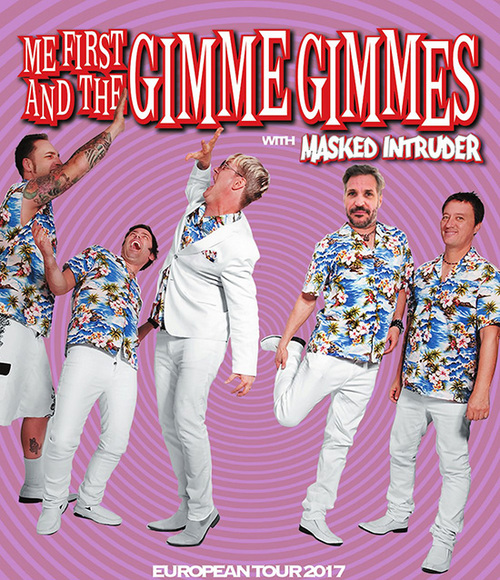
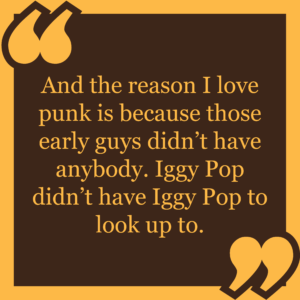 people listen to while they come up with their own solution. To me, punk is just sort of this expression of, “This is who I am. I was born weird and now I wear what used to feel like flaws as armor.” But I don’t know that any political ideology attached to it has any relevance in our current context.
people listen to while they come up with their own solution. To me, punk is just sort of this expression of, “This is who I am. I was born weird and now I wear what used to feel like flaws as armor.” But I don’t know that any political ideology attached to it has any relevance in our current context.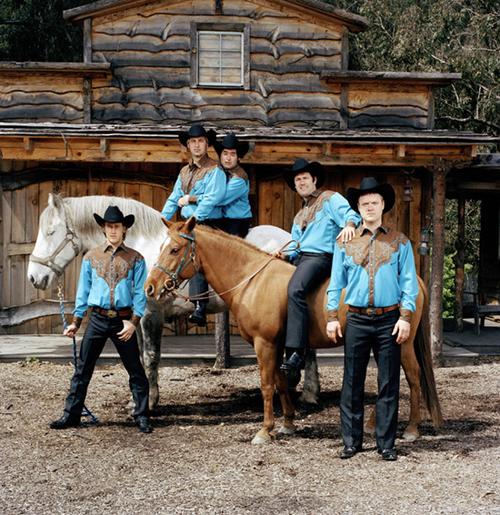
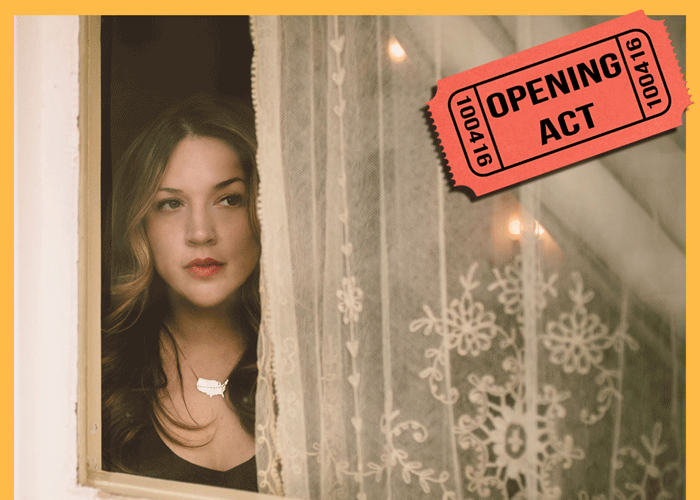
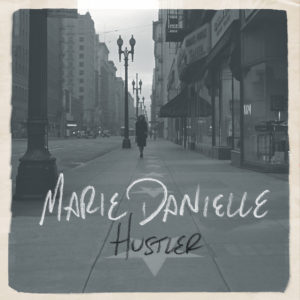 Artist/Band: Marie Danielle
Artist/Band: Marie Danielle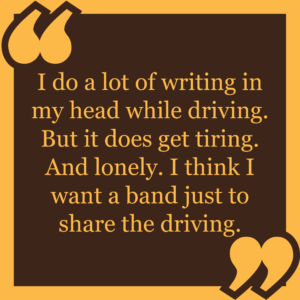 the song, scared to give too much away. If it isn’t a little dangerous, it isn’t worth doing.
the song, scared to give too much away. If it isn’t a little dangerous, it isn’t worth doing.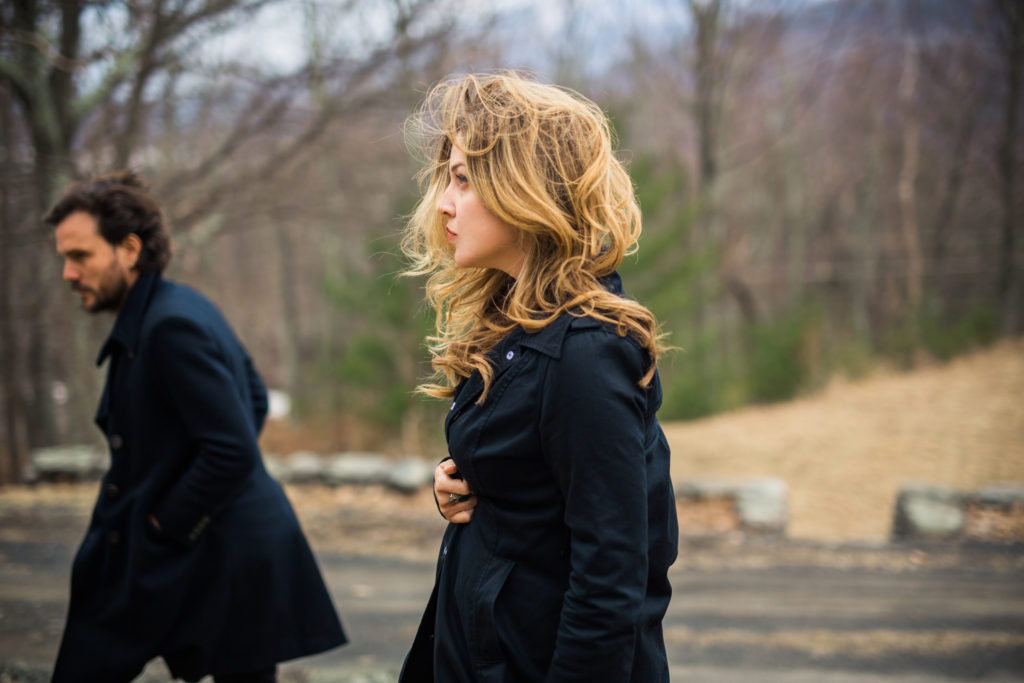
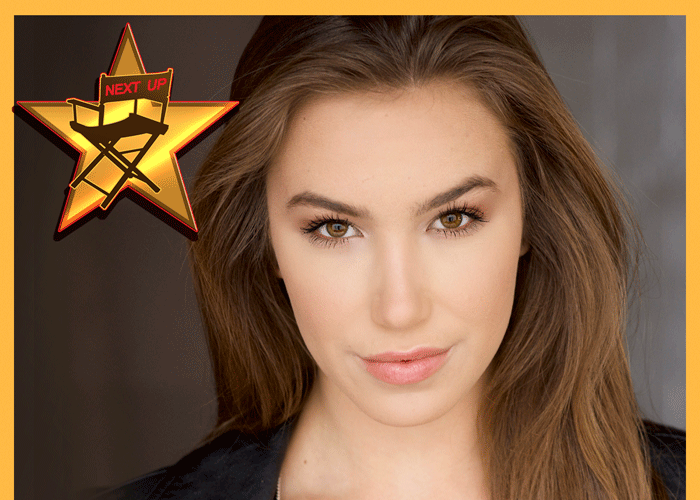
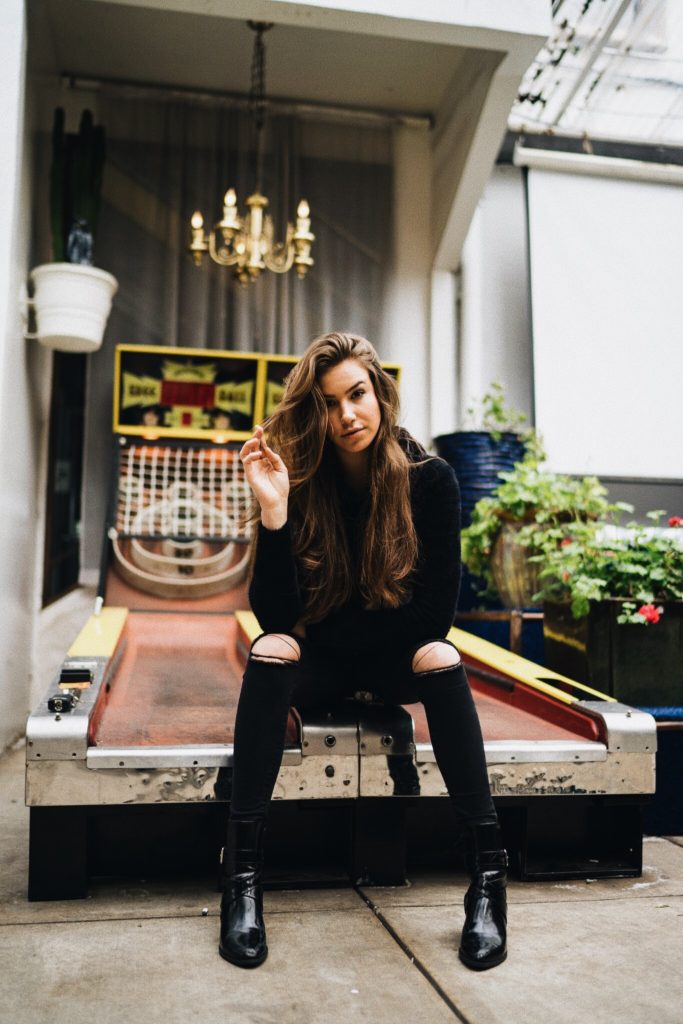
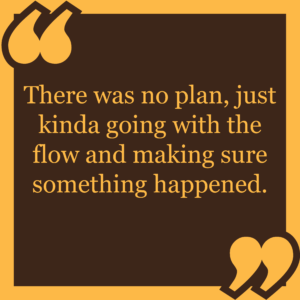 already had, are the best support system in the world.
already had, are the best support system in the world.